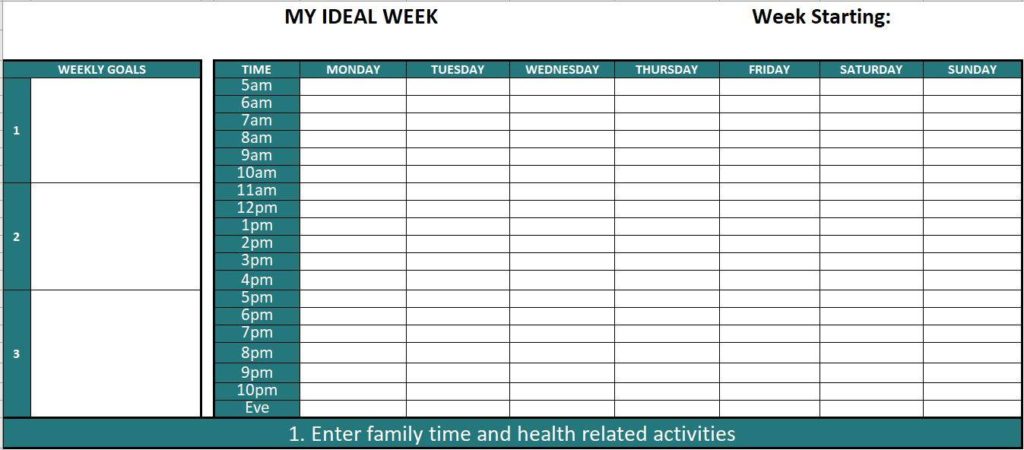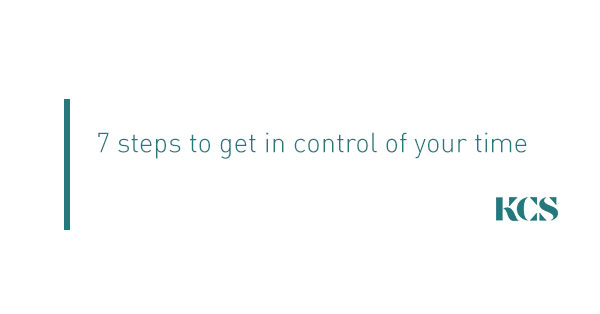The only thing in this wonderful world of ours that we can’t buy more of is… time. It’s the most precious commodity we have as business owners and we all get the same amount every single day. So why is it that some of us seem to be more successful than others with exactly the same 24 hours? The answer lies within your abilities to manage your time, to systemise the organisation, planning and division of your time between specific tasks. Systemised time management enables you to work smarter, not harder so that you get more done in less time, even when time is tight, and pressures are high. It’s a proven statistic that failing to manage your time damages your effectiveness and causes more stress than you are already under as a business owner.

How do you know if you need to systemise your time?
- Do you feel like you’ve been running around like a headless chicken each day?
- Do you get to the end of the day and don’t really feel like you’ve achieved anything?
- Does your “To Do” list grow faster than you seem to be able to tick things off of it?
- Do you jump from one task to the next without finishing the previous one?
- Do you get pulled in a million different directions all at the same time?

If you answered yes to any of the above questions, then you NEED to systemise your time! Yes, it will seem like just another thing to do and yes, it will take a small investment of your time but the benefits you will achieve will far out way the up-front investment. Remember, anything of great value takes time to create and implement.

What are the benefits of systemising your time?
Systemising your time is not a new concept, some of the most successful people in our history promoted time management. Benjamin Franklin wrote about it in his autobiography whilst management thinker and author, Peter Drucker, is a huge advocate for working in “fairly large chunks” of time, as opposed to a few minutes here and there.
As business owners, our responsibilities are long and varied and can 9/10 times cause us to feel overwhelmed or stressed or, both! When we follow a system to help us get things done, we can bring balance into our life, allowing us to prioritise where our time is spent and ensure maximum results with minimal input both personally and professionally.
What is currently happening without a system to manage your time? Here are some examples that as business owners we are probably guilty of most weeks;
- You get emails all day every day and literally spend all day responding to them and not actually achieving anything else of importance
- Your staff submit timesheets at different times during the week, so you process them one at a time when you get them even though pay runs for all staff are done on Thursdays
- You jump into social media to post your “Tip of the Week” and see an ad for something you are interested in and down the rabbit hole you go… for 1 … 2 … 3 hours
- Your staff constantly interrupt you all day for answers to questions that could probably wait for the staff meeting
- The phone rings, you answer it and respond to whatever is required, the phone rings half way through responding to the previous call and so you start actioning that requirement and so on and so on until you reach the end of the day with 25 million things started but not finished…
Have you ever noticed that if you repeat the same task over and over, it gets done faster each time? This is because your brain muscle memory knows what needs to be achieved the first time and sets about achieving it time and time again with minimal input. Thus, shortening the amount of time taken to complete the activity with the same tasks. So, why would you complete a task here and a task there when you could be clumping your tasks into larger time slots and effectively starting to manage your time? Other key benefits to systemising your time could include;
- Decreased stress and overwhelm
- Increased productivity and efficiency
- Increased opportunities for business growth
- Improved professional reputation
- Success in achieving important personal and business goals
If all of that is not enough for you to see value in systemising your time, Parkinson’s law states that work tends to expand to fill the time allotted for it, so if you don’t have time allotted for tasks, how much time are you actually wasting? If you want to find out, you can systemise your time by building your “Ideal week”.

Steps to building your “Ideal Week”
Get in control of your time and know where it goes with these 7 simple steps to building your ideal week;
- Write a list of ALL the tasks that you do in a week (Monday to Sunday), this should include both business and personal (Take the week to ensure you get them all)
- Categorise them into departmental areas (HR, general admin, operations, clients, eating, sleeping, exercising, socialising, family etc)
- Allocate time amounts to each category as a whole (Includes time it takes to complete all tasks within the category)
- Place all the categories in specific time slots during the week when you know it is realistic and the value of completing those tasks is high (Do personal categories first)
- Put your ideal week into your calendar so you can start to follow it
- Communicate your ideal week with your staff and family so they can respect and follow it with you
- Implement your ideal week


What is stopping you from getting control of your time?
As business owners, it’s very easy for us to get sucked into the big black hole of working IN the business rather than working ON the business. Whilst both are equally important, if you don’t know where your time is being spent, how can you confidently confirm that you are spending equal amounts of time building your product / service and building your business?
Get in control of your time by creating your ideal week and put it to the test! The only thing we will remind you is that habits take time to implement and become efficient and effective so don’t be too hard on yourself if it doesn’t work the first week. Stick with it and day after day, your ideal week will become habit and you will start to experience all the great benefits we discussed.

thanks for your tips is really helpful
Thank you for letting us know it helped at least 1 person!